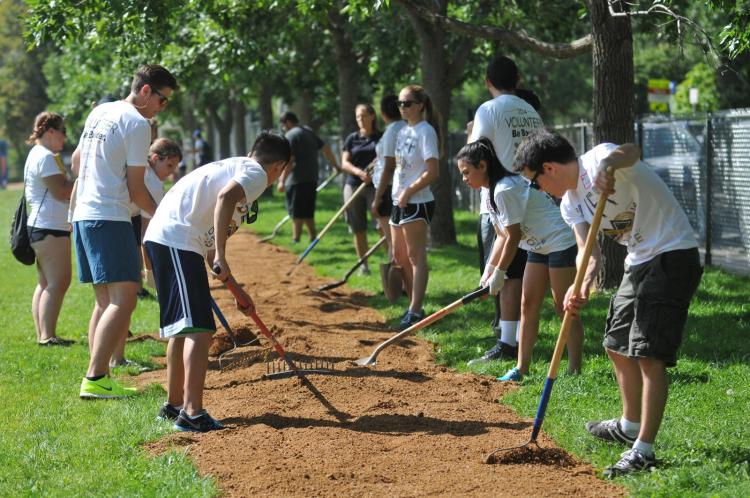Effective ways to volunteer after a natural disaster
Natural disasters like floods or fires can be unpredictable and when they occur, how we respond to support the community can make all the difference. Here are some things to consider if you want to volunteer after a natural disaster.
Volunteering matters

- Make an impact. Make a difference in the communities you serve and help shape the ways that community develops.
- Learn. Gain an understanding of what is needed in the community, and how to allocate your time and resources in the most helpful way.
- Connect. Connect with organizations and people that are making a difference in your community and expand your knowledge of available resources.
- Grow. Develop and practice professional skills, including leadership, collaboration, group facilitation, communication and following directions.
Understanding community needs
When natural disasters happen, community needs can suddenly change, so your work as a volunteer will likely be specific to those needs. Here are some examples of what you could do to have a short or long term impact when you volunteer.
Direct or immediate volunteer work
- Communication: This could include getting people to safety or pointing them to where they can get help.
- Distributing resources: Organizing and distributing resources like food and medical supplies, bottled water, etc.
- Donating: From money, canned food and even blood donations, making a contribution can be very helpful in that moment.
- Support: Listen to first responders, experts and the needs of the community. Follow instructions and cooperate with leaders in managing disasters, making sure people are following evacuation and emergency plans or any other duties that are needed.
Long-term volunteer work
It’s important to remember that support is usually needed long after a natural disaster occurs. Consider things like:
- Helping rebuild homes and other destroyed structures with organizations like Habitat for Humanity.
- Cleaning up and supporting recovery to the natural environment through organizations like Wildlands Restoration and Open Space and Mountain Parks.
- Working with historic preservation organizations like HistoriCorps and museums to help preserve records of the event and how it impacts the history and culture of the area.
- Volunteering with animal shelters and rescues to rehome animals in need and offer donations if you are able.
- Volunteering with youth empowerment centers to provide support as people continue to recover.
Things to do when volunteering
In order to make sure your time as a volunteer is making a positive contribution, take a look at the things you can do before and during your shift to help the community in the best way possible.
- Educate yourself. By researching and listening to the needs of those most affected, you can have a greater impact on the community.
- Follow leadership. It’s important to listen closely to instructions and safety procedures and follow through on your assigned tasks to the best of your ability.
- Support organizations already working to serve marginalized communities and those with increased need.
- Prepare yourself. Read up on any materials or other paperwork provided to you before arriving, so you can best serve as a volunteer.
- Be mindful of photography and posting on social media. Always ask for consent and consider the safety and privacy of those you are serving.
Remember that as a volunteer, you shouldn't just “show up” without learning about the organization, the communities most impacted and listening to local leadership, as this can reduce your ability to be effective and the impact you’re hoping to make in the community.
Help in other ways
Even if you can’t give your time to volunteer after a natural disaster, there are still many ways in which you can contribute. You can:
- Donate what you can. Whether it’s money, clothes or food, your donation can go a long way. If you are donating items like food or supplies, do a little research first to see what is needed most.
- Donate school supplies through organizations that are connected to the community. Natural disasters can disrupt education or cause school closures.
- Help raise funds. Whether it’s through a GoFundMe page to support the organization or to help families that were directly affected by the natural disaster, raising money can be done from anywhere.
To get started
Whether you want to join an organization or learn about ways to give back after a natural disaster, the Volunteer Resource Center (VRC) can help you explore opportunities to make a difference in your community. Their philosophy of learn, serve and reflect allows you to make meaning of your experience and identify how your experience has impacted your approach to community service.

